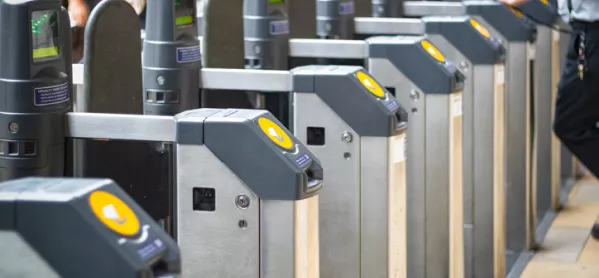- Home
- Government urged to save free London travel for 16-18s
Government urged to save free London travel for 16-18s

The Association of Colleges has written to transport secretary Grant Shapps, urging him against scrapping free travel for 16- to 18-year-olds in London.
Currently, those aged 16-18 are entitled to a 16+ Zip Oyster card, which allows them to travel on buses and trams for free, and on the Tube at a 50 per cent discounted rate.
However, under the new deal the government has struck with Transport for London (TfL), this card is due to be scrapped. Data shows that 93 per cent of London college students aged between 16 and 19 travelled up to six miles (in a straight line) in 2019-20 to access their college, often on complex routes.
News: How FE qualifications are perceived
More: Young people to get 'opportunity guarantee'
David Hughes: £200m for buildings is the tip of the iceberg for FE
In his letter to Mr Shapps, AoC chief executive David Hughes warned that scrapping the card risks preventing the most vulnerable and disadvantaged young people from accessing further education.
He wrote: “Young people choose their college for many reasons. Many young people travel further distances to college in order to take advantage of college specialisms and reputation. Others take their post-16 education as an opportunity to reinvent themselves; to get away from a poor educational history, behavioural issues or gang affiliations. For some, the choice is simply because the journey is better, and they are often juggling other responsibilities as well as their studies.
“We can provide ample evidence of the impact on the life chances of young people, who anyway are disproportionately affected during economic recessions. Scrapping subsidised travel risks shutting out the most vulnerable and disadvantaged young people even further. I would urge you to scrap the proposal to remove free travel for under-18s on TfL services. As a minimum we would ask that you seek to protect travel concessions afforded to young people through the 16+ Oyster card.”
The AoC is backing a campaign led by the Child Poverty Action Group (CPAG) for the reinstatement of free travel for all under 18s called Don't Zap the Zip.
'Hitting poorest Londoners hardest'
Alison Garnham, chief executive of CPAG, said that the government should not be creating extra expense for already-struggling families or restricting children’s independence and mobility.
She said: “We are deeply concerned that the suspension of free travel for under-18s will hit the poorest Londoners hardest. There are 2 million under-18s living in London and 37 per cent of them are living in poverty: families are already struggling and have suffered job losses and income shocks as a result of the pandemic.
“The current health crisis means that many families may already be worried about sending their children back to school, and suspending free travel will only create an additional barrier to them. It will also mean that children and young people are more limited to their local area, less able to access services, and more likely to miss out on sports, leisure and cultural activities. If the priority is to enable all children to reach their full potential, the government should drop the planned suspension of free travel and focus on positive ways to encourage children to engage in enriching activities, including walking and cycling.”
AoC’s area director for London, Mary Vine-Morris, said that so many young students rely on their 16+ Oyster card to get to school or college, train and experience all that London has to offer.
She said: “Opening up London to young people has never been more important and the decision to remove subsidied travel from those who need it most will restrict a whole generation from accessing learning, opportunity and London’s rich culture.
“London’s colleges know this better than most, with many students having to use buses and trains to access a course or employer that focuses on their specialism. Travel costs should not be a barrier to any young person’s education or limit their choices when deciding what is the best next step for them. If free travel is removed for the capital’s 16- to 18-year-olds, we risk a real step backwards in levelling the playing field for every young person to access opportunities to better their lives and reach their full potential.”
Keep reading for just £1 per month
You've reached your limit of free articles this month. Subscribe for £1 per month for three months and get:
- Unlimited access to all Tes magazine content
- Exclusive subscriber-only stories
- Award-winning email newsletters



